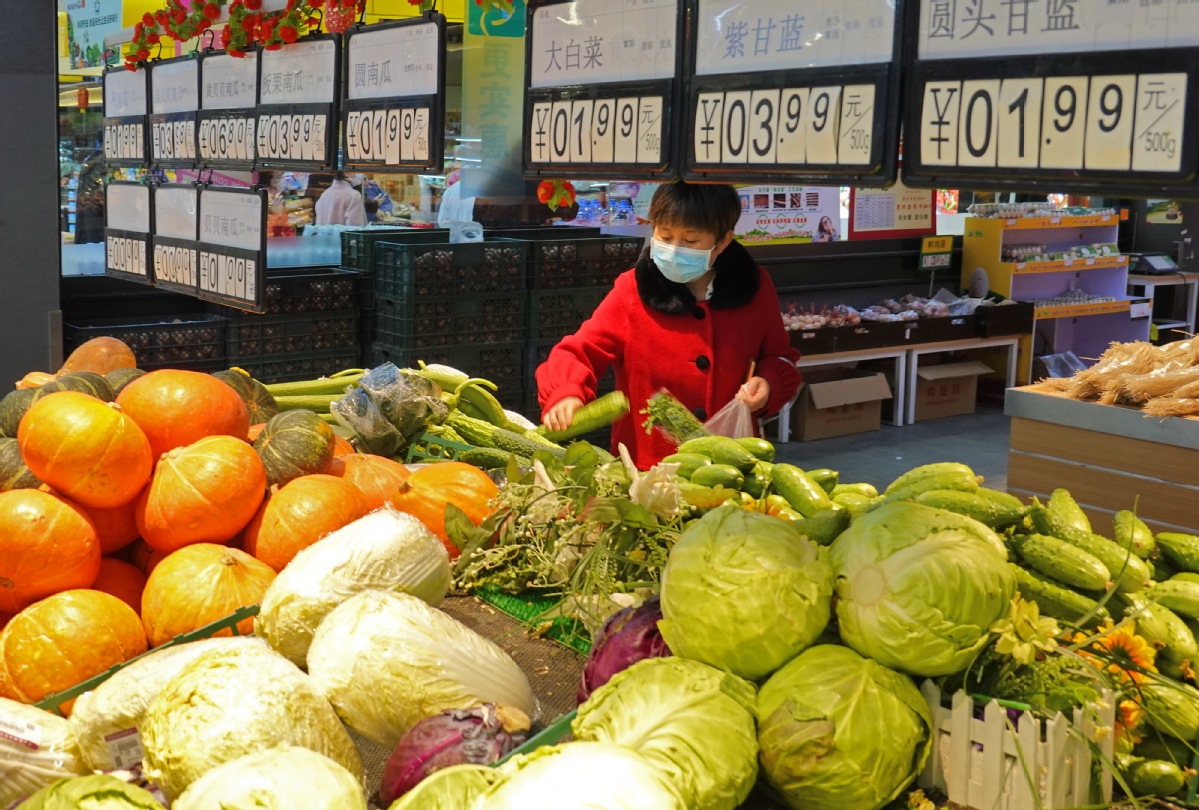
A consumer buys vegetables at a supermarket in the city of Yantai, Shandong province. (Photo: China Daily)
The National Development and Reform Commission and 22 other State departments recently issued a joint guideline outlining 19 policy measures for improving the domestic consumption environment, removing institutional barriers and boosting governance capability in the consumption sector.
Given that the novel coronavirus has severely impacted China's service sector for almost three months, this is a necessary move to unleash the restrained consumption, which should rebound robustly.
Removing some institutional barriers can better meet people's consumer needs and foster economic growth now that the epidemic seem to have been brought under control. But, even so, there are still some obvious barriers to consumption, underlining the need for change in the consumption environment.
Chinese are now the world's main consumers of tourism services, with their spending on international tourism reaching $277.3 billion in 2018, nearly double that of the United States at $144.2 billion.
The new guideline says the country will actively expand imports, further increase the supply of high-quality goods in the domestic market and adjust the consumption tax on high-grade watches, jewelries and precious jade to increase purchasing power at home.
It also calls for the construction of a number of duty-free shops with Chinese characteristics and timely research on the adjustment of duty-free quotas and types of duty-free goods.
Of course, the most important thing is to raise people's spending power. The country should expand employment and raise people's incomes. Lowering consumption costs can also boost people's purchasing power.
Thus, the country's macroeconomic policy should play a crucial role in order to boost consumption.


